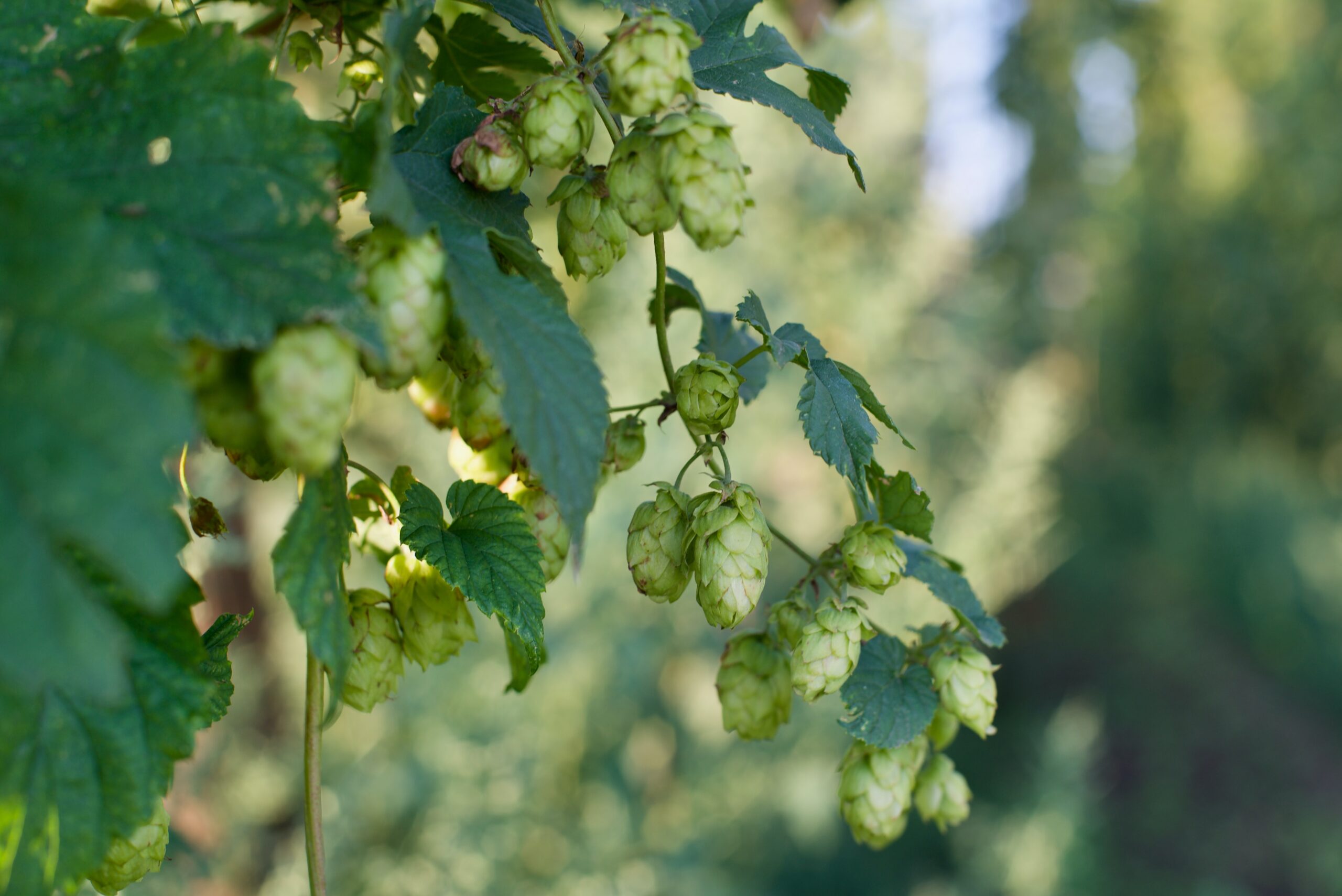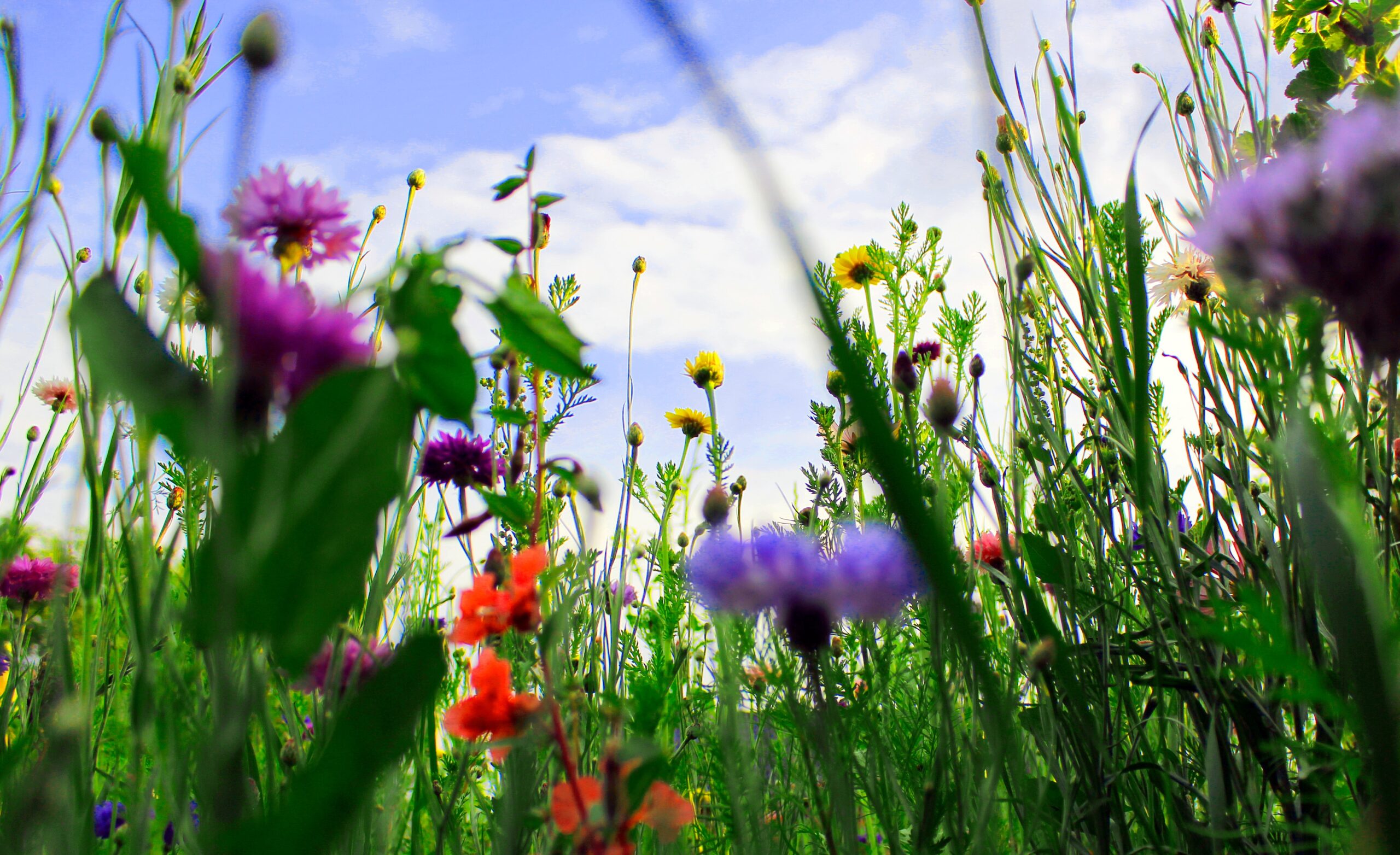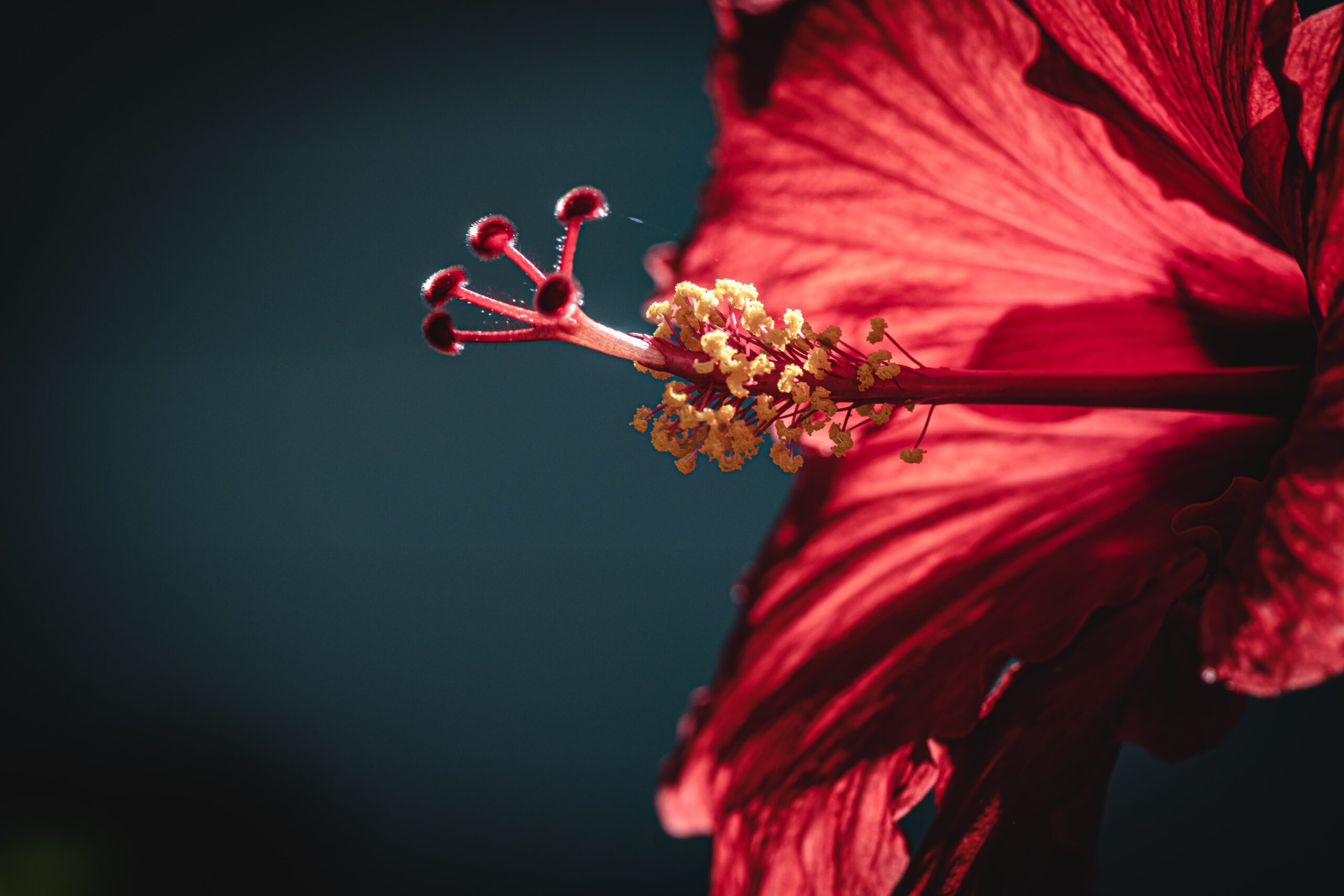
9 ways to support sleep naturally using plants
the chosen few that we're most interested in...
Whether it's a chronic, on-going battle with insomnia that you face, or just trouble falling asleep from time to time, there are a couple of reasons why supporting sleeplessness with plants could be a good way to go!
Plants provide not only a natural form of many of the compounds used to create our modern sleeping meds, but they have also been tried and tested over thousands and thousands of years for the long list of benefits they can offer to the human body.
Plants are the oldest technology on our planet, and the trick is in really knowing how to use them right.
When it comes to relying on plant-based remedies to support general sleeplessness as well other sleep related disorders, there is a long history of traditional plant-medicine use within countries all over the world (1).
Shockingly, almost 50% of the people who deal with sleep issues on a regular basis have never taken steps to try and resolve them, and a majority of individuals express major hesitation towards speaking with a physician. For those who do talk to their doctor about having problems with their sleep, approximately half will be prescribed medications such as benzodiazepine according to one study conducted about drug use in Western Europe and the U.S (2).
These commonly used sleep aids can be helpful for some, but can also come with a range of negative side effects such as daytime drowsiness, dependency issues, and hypnotic-withdrawal insomnia (3).
Whilst this doesn’t mean that plant medicines shouldn’t be taken with due care, side effects are relatively unusual. As a result, there are easy ways to incorporate them into your daily routine so that you can figure out precisely which plants suit your lifestyle the most, how much to take of them, and when.
In fact, this is exactly why we created sofi.
Findings from a range of clinical studies reveal the advantages of using complementary plant-based medicines for sleeplessness and insomnia, and we made it our job to find out exactly how (4).
By conducting an extensive review of over 102 studies and meta-analyses of herbal remedies associated with the treatment of sleeplessness and insomnia, we’ve scoured the scientific data for which of these plants we think can help you the most.
If you’re more interested in understanding the precise pathways involved in sleep, and what we know about the origins of insomnia, however, we’ve put together a separate article on the brain-science of sleeplessness that you can always check out first.
Here’s a breakdown of which plants we’re interested in for their potential to help us improve and better comprehend the struggle with both acute and chronic sleeplessness.
*Please note that the following does not constitute medical advice, nor which plants will or will not work specifically for you. Instead, our team of doctors, scientists, medical herbalists, and psychologists at sofi are here to optimise our plant-based formulations so that nature and N-of-1 trials can do the rest!
9 plants with high potential to help you sleep
- Valerian
At sofi, we’re fans of Valerian for several different reasons. First and foremost, there exists an extensive body of research that highlights the roots of this plant as being one of the safest and most widely effective forms of improving sleep.
Valerian is believed to work via modulation of GABA receptors in the brain, as well as influencing the production of serotonin (5-HTP). Learn about the role of GABA and 5-HTP by visiting our Neurotransmitter’s Guide To Sleep.
One study involving the repeated use of Valerian found a significant decrease in the amount of time it took for participants to fall asleep, in addition to them exhibiting signs of better sleep maintenance overall, and an improved subjective experience of sleep (5).
In this sense, not only did participants sleep more easily and consistently according to their brain activity, but they actually felt better about their sleep, too.
In addition to its therapeutic qualities, Valerian is proven to be safe, and has successfully been deemed acceptable for routine use — which is why we’re using Valerian extract in our first plant-based formulation and expecting promising results (6).
- Lemon Balm
Another plant believed to benefit your bedtime routine via mechanisms associated with GABAergic receptors is Lemon Balm. This pretty, flowering herb is primarily associated with improvements in mood, sleep, and other related disorders, due to its ability to minimise stress-related effects in the brain with minimal (and mild, at worst) side effects (7).
Lemon Balm possesses major active compounds that have the ability to interact with and potentially bind to molecules that directly affect the pathways responsible for the mitigation of insomnia.
Research shows that Lemon Balm can induce a low but sustained level of something referred to as anxiolysis, providing a significant reduction in participants’ cortisol levels as quickly as 1 hour after ingestion (8, 9).
Anxiolysis is the term for the experience of a reduction in anxiety, and one that’s characterized by feelings of calm, restfulness, and a peaceful, meditation-like state, so it’s no wonder why this plant has benefits that include aiding sleep.
- Passionflower
Passionflower, also referred to as Passiflora incarnata, is a gorgeous species of plant native to the areas of South America, Australia, and South-East Asia. This plant, including the flowers and fruits, are frequently harvested for medicinal purposes and use in pharmaceuticals around the world.
In addition to being high in C and B vitamins and minerals such as calcium, phosphorus, and iron, passionflower is studied to possess a therapeutic effect in the management of sleep disorders, restlessness, memory loss, menstrual pain, and even degenerative brain diseases (10).
Research on mainstream medicines used for aid in sleep have found increasing bodies of evidence to suggest that most sleeping pills can be linked to harmful changes in metabolic processes — but this is one interaction that passionflower uniquely manages to avoid (11).
As a result, using passionflower as a herbal remedy for improving sleep is both a safe and highly beneficial habit, shown to increase GABAergic neuron activity and levels of melatonin within the blood, without affecting body composition or appetite. It's easy to see why our second plant-based formulation for anxiety and sleep is, indeed, 100% passiflora. *
*Disclaimer: sofi is a food supplement and should never be used as a replacement for proper treatment or medical care.
- Chamomile
German Chamomile is one of the most popular ingredients in nighttime herbal teas, and is the most widely used natural remedy for sleep.
This flower’s sedative effects are thought to be due to the flavonoid, apigenin, that binds to benzodiazepine receptors in the brain. In other words, it works by utilizing the same pathways and physiological mechanisms as prescription drugs for sleep — without the many unwanted side effects that often accompany them.
Further research has found that regular ingestion of chamomile is linked to reduction in inflammation, anxiety, and stress-induced hormone response, suggesting this plant’s ability to target multiple mechanisms within the body (12).
Due to its support as a depressant of the Central Nervous System, and, consequently, a chemical aid for sleep, chamomile is an incredibly safe herb with a wide range of helpful and healthful applications. Try drinking it in tea or adding chamomile flowers to your evening meal!
- Hops
Although Hops are most commonly used for brewing, evidence suggests they may contribute to a soothing effect linked to a reduction in sleep latency, aka the time it takes for an individual to fall asleep.
The majority of the Hops pharmacological activity comes from the resins present within the plant, and specifically the α-acid degradation product 2-methyl-3-buten-2-ol, which are responsible for giving Hops their bitter taste (13).
Not unlike Passionflower, Lemon Balm and Valerian, Hops modulate GABAa receptors within the brain and are also thought to influence the production of melatonin, and act as an inhibitory neurotransmitter in the CNS, triggering the body to enter its “rest and digest” state for sleep (14).
*Interestingly, studies have shown that even drinking non-alcoholic beer can have sedative effects, and while this isn’t our recommended method of harnessing the power of plants at sofi, we do think it’s pretty cool.
- Skullcap
Named after its resemblance to the type of medieval helmets worn during battle and the latin word for “little dish,” Skullcap is a Native American plant within the mint family that has been historically used for improving sleep and relieving sleep-disorder related symptoms.
Skullcap contains large amounts of flavonoids, including two called scutellarin and baicalin, which are the active compounds believed to account for most of the plant’s positive effects on sleep and a decrease in restlessness and anxiety (15).
While the precise mechanisms remain to be fully understood, some studies highlight the ability of baicalin to activate GABAa receptors and therefore exhibit a biphasic benefit on sleep-wake regulation within the body.
In less scientific terms, this means the plant can decrease slow-wave sleep during periods of lightness, such as the daytime, while increasing slow-wave sleep and rapid eye-movement (REM) sleep during the night time — allowing better adherence to the body’s natural circadian rhythm.
- St. John’s Wort
Not only does evidence suggest St. John’s Wort as being an effective herbal remedy for inducing and promoting sleep, but preliminary research has identified its ability to reduce some of the harmful effects associated with sleep deprivation, too (16).
When the human body is deprived of sleep — as is often the case with chronic insomniacs and sufferers of sleeplessness — consequences such as oxidative stress damage, increased anxiety, and metabolic issues are not unexpected.
While this potent healing plant has been linked to side effects such as digestive discomfort, dizziness, and headaches when consumed in large doses, and can not always be safely combined with other medications, studies nonetheless suggest a high therapeutic potential (17).
- Magnolia Bark
Magnolia Bark, aka Magnolia Officinalis, is a species of plant native to China with a documented history of alleviating issues related to sleep.
Research shows that two bioactive compounds in particular are thought to contribute to the plant’s sedative and hypnotic effects, magnolol and honokiol — which studies suggest increase both REM and non-REM sleep via modulation of GABAa receptors (18).
While extracts of both magnolol and honokiol are used widely for aiding and encouraging sleep, honokiol is also researched for its role in the prevention of anxiety and depression.
Because efficacy and safety research has been conducted on the Magnolia Officinalis plant, literature indicates a high potential for its therapeutic use as a treatment and positive natural solution for sleeplessness and chronic insomnia (19).
- Ginseng
Traditionally, both red and white ginseng have been used as a herbal remedy for the short-term relief of fatigue, weakness, and “lack of vitality,” according to the European Medicines Agency's Committee on Herbal Medicine Products (HMPC) (20).
When the roots of the plant are dried and sometimes steamed (as it is in the case of Ginseng red), the ginsenosides present within the plant contribute to an anxiolytic and sedative effect - but when it comes to insomnia, the use and effectiveness of Ginseng becomes a little more complex.
Ginseng is thought to have a tranquillisation and equalising effect on human physiology, but its active compounds target a range of mechanisms within the body, making the specific actions of this plant complicated to dissect.
In this sense, our herbalists actually agree that Ginseng is best used as a daytime stimulant to enhance energy, but one that allows for sleep to be encouraged more naturally when day inevitably transitions to night.
Studies have found that between the two, Ginseng red showed strongest potentiation of GABAa receptors, and can therefore be used to achieve higher levels of sedation at night when taken throughout the day. The takeaway here being that, for insomnia, it is not recommended to try Ginseng before bed (21).
Take our free quiz and discover which formulations for better calm and sleep sofi recommends starting your journey with.
References:
- Bahramsoltani R, Rostamiasrabadi P, Shahpiri Z, Marques AM, Rahimi R, Farzaei MH. Aloysia citrodora Paláu (Lemon verbena): A review of phytochemistry and pharmacology. J Ethnopharmacol. 2018 Aug 10;222:34-51.
- Léger D, Poursain B, Neubauer D, Uchiyama M. An international survey of sleeping problems in the general population. Curr Med Res Opin. 2008 Jan;24(1):307-17.
- Kripke D. Hypnotic drug risks of mortality, infection, depression, and cancer: but lack of benefit. 5:p. 918.
- Hu, Z., Oh, S., Ha, T. W., Hong, J. T., & Oh, K. W. (2018). Sleep-Aids Derived from Natural Products. Biomolecules & therapeutics, 26(4), 343–349.
- Morin AK, Jarvis CI, Lynch AM. Therapeutic options for sleep-maintenance and sleep-onset insomnia. Pharmacotherapy. 2007 Jan;27(1):89-110.
- Shi Y, Dong JW, Zhao JH, Tang LN, Zhang JJ. Herbal Insomnia Medications that Target GABAergic Systems: A Review of the Psychopharmacological Evidence. Curr Neuropharmacol. 2014 May;12(3):289–302.
- Scholey, A., Gibbs, A., Neale, C., Perry, N., Ossoukhova, A., Bilog, V., Kras, M., Scholz, C., Sass, M., & Buchwald-Werner, S. (2014). Anti-stress effects of lemon balm-containing foods. Nutrients, 6(11), 4805–4821
- Cases, J., Ibarra, A., Feuillère, N., Roller, M., & Sukkar, S. G. (2011). Pilot trial of Melissa officinalis L. leaf extract in the treatment of volunteers suffering from mild-to-moderate anxiety disorders and sleep disturbances. Mediterranean journal of nutrition and metabolism, 4(3), 211–218.
- Scholey, A., Gibbs, A., Neale, C., Perry, N., Ossoukhova, A., Bilog, V., Kras, M., Scholz, C., Sass, M., & Buchwald-Werner, S. (2014). Anti-stress effects of lemon balm-containing foods. Nutrients, 6(11), 4805–4821.
- Janda, K., Wojtkowska, K., Jakubczyk, K., Antoniewicz, J., & Skonieczna-Żydecka, K. (2020). Passiflora incarnata in Neuropsychiatric Disorders—A Systematic Review. Nutrients, 12(12), 3894.
- Kim M, Lim HS, Lee HH, Kim TH. Role identification of Passiflora Incarnata Linnaeus: a mini review. J Menopausal Med. 2017;23(3):156–9.
- Srivastava, J. K., Shankar, E., & Gupta, S. (2010). Chamomile: A herbal medicine of the past with bright future. Molecular medicine reports, 3(6), 895–901
- Baek JH, Nierenberg AA, Kinrys G. Clinical applications of herbal medicines for anxiety and insomnia; targeting patients with bipolar disorder. Aust N Z J Psychiatry. 2014 Aug;48(8):705-15.
- Franco L, Sánchez C, Bravo R, Rodriguez A, Barriga C, Juánez JC. The sedative effects of hops (Humulus lupulus), a component of beer, on the activity/rest rhythm. Acta Physiol Hung. 2012 Jun;99(2):133-9
- Chang HH, Yi PL, Cheng CH, Lu CY, Hsiao YT, Tsai YF, Li CL, Chang FC. Biphasic effects of baicalin, an active constituent of Scutellaria baicalensis Georgi, in the spontaneous sleep-wake regulation. J Ethnopharmacol. 2011 May 17;135(2):359-68.
- Kumar A, Singh A. Protective effect of St. John's wort (Hypericum perforatum) extract on 72-hour sleep deprivation-induced anxiety-like behavior and oxidative damage in mice. Planta Med. 2007 Oct;73(13):1358-64
- Meolie AL, Rosen C, Kristo D, Kohrman M, Gooneratne N, Aguillard RN, Fayle R, Troell R, Townsend D, Claman D, Hoban T, Mahowald M; Clinical Practice Review Committee; American Academy of Sleep Medicine. Oral nonprescription treatment for insomnia: an evaluation of products with limited evidence. J Clin Sleep Med. 2005 Apr 15;1(2):173-87.
- Shi Y, Dong JW, Zhao JH, Tang LN, Zhang JJ. Herbal Insomnia Medications that Target GABAergic Systems: A Review of the Psychopharmacological Evidence. Curr Neuropharmacol. 2014 May;12(3):289-302.
- Hoffmann KM, Herbrechter R, Ziemba PM, Lepke P, Beltrán L, Hatt H, Werner M, Gisselmann G. Kampo Medicine: Evaluation of the Pharmacological Activity of 121 Herbal Drugs on GABAA and 5-HT3A Receptors. Front Pharmacol. 2016 Jul 29;7:219.
- European Medicines Agency. Assessment Report on Panax ginseng C.A. Meyer, Radix: Based on Article 16d(1), Article 16f
and Article 16h of Directive 2001/83/EC as Amended (Traditional Use), Amsterdam, The Netherlands, 2014. - Hoffmann KM, Herbrechter R, Ziemba PM, Lepke P, Beltrán L, Hatt H, Werner M, Gisselmann G. Kampo Medicine: Evaluation of the Pharmacological Activity of 121 Herbal Drugs on GABAA and 5-HT3A Receptors. Front Pharmacol. 2016 Jul 29;7:219.

